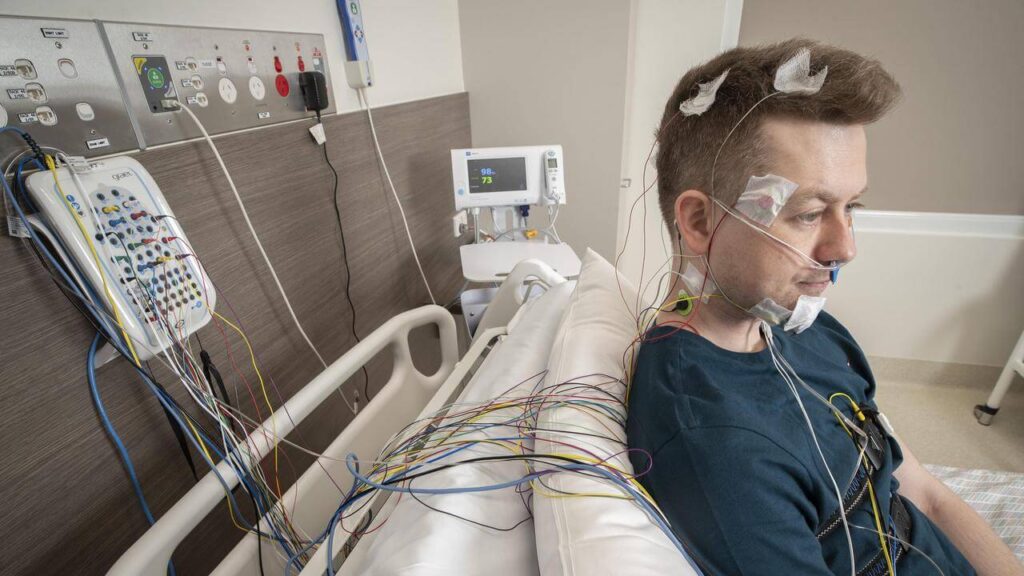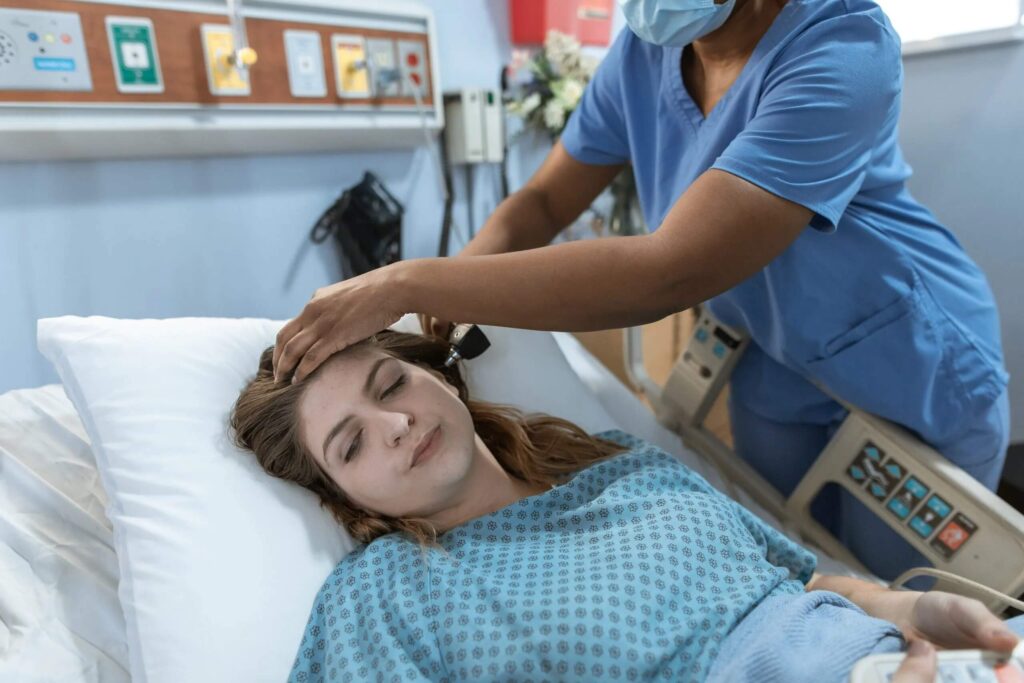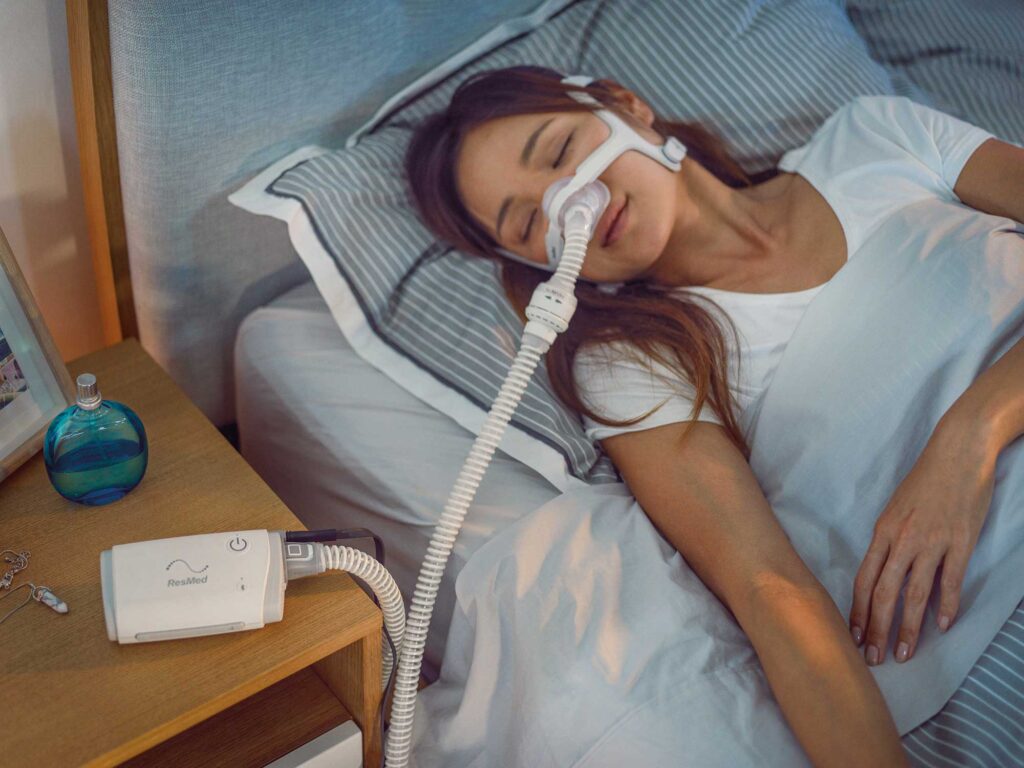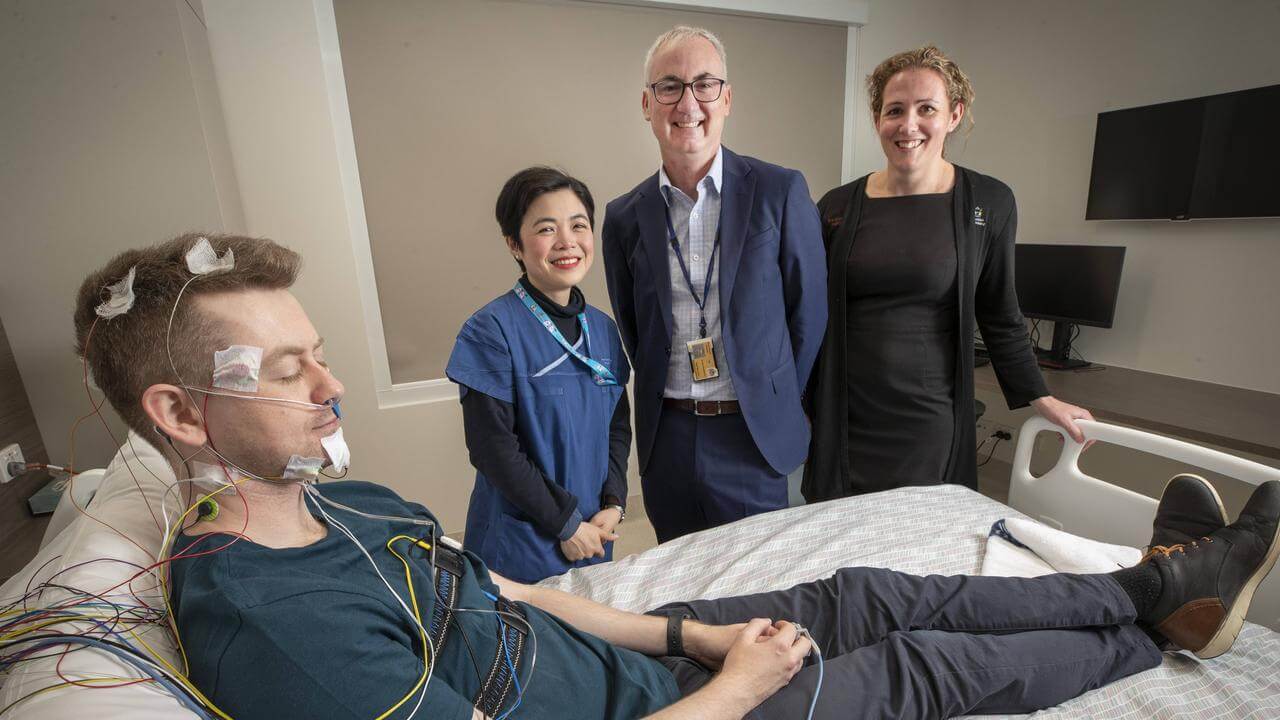Getting quality sleep is essential for maintaining overall health and well-being. However, millions of people struggle with sleep disorders that affect their daily lives. If you’re experiencing sleep-related issues, a sleep study in Hobart can help diagnose the problem and guide you toward effective treatment. Whether you suffer from sleep apnea, insomnia, or restless leg syndrome, undergoing a professional sleep assessment can be a crucial step toward better sleep.
What Is a Sleep Study?
A sleep study, also known as polysomnography, is a non-invasive test conducted to monitor various physiological activities during sleep. This comprehensive evaluation helps identify sleep disorders such as:
- Obstructive Sleep Apnea (OSA) – A condition where breathing repeatedly stops and starts during sleep.
- Insomnia – Difficulty falling asleep or staying asleep.
- Narcolepsy – Excessive daytime sleepiness and sudden sleep attacks.
- Restless Leg Syndrome (RLS) – Uncontrollable urges to move the legs, particularly at night.
A sleep study Hobart can provide accurate results, allowing sleep specialists to recommend the best treatment options based on individual needs.

Why You May Need a Sleep Study in Hobart
Many people ignore sleep problems, thinking they will resolve on their own. However, untreated sleep disorders can lead to serious health issues, including high blood pressure, heart disease, and diabetes. If you experience any of the following symptoms, you should consider undergoing a sleep study:
- Loud snoring or gasping for air during sleep.
- Excessive daytime drowsiness, even after a full night’s sleep.
- Frequent headaches in the morning.
- Trouble concentrating or memory issues.
- Unusual movements or behaviors during sleep.
Seeking a sleep study in Hobart is essential to improving both sleep quality and overall health.
Types of Sleep Studies Available in Hobart
Different types of sleep studies are available, depending on the symptoms and severity of the suspected sleep disorder. Here are the most common types of sleep tests conducted in Hobart:
1. In-Lab Sleep Study (Polysomnography)
This test is performed in a controlled environment, such as a sleep clinic or hospital. During the study, various sensors are placed on the body to monitor brain activity, heart rate, oxygen levels, and body movements. Polysomnography is recommended for patients with severe sleep disorders that require detailed analysis.
2. Home Sleep Apnea Test (HSAT)
For individuals suspected of having obstructive sleep apnea, a home-based test may be recommended. This test uses a portable device to monitor breathing patterns, oxygen levels, and snoring intensity while the patient sleeps in their own bed. A home sleep study in Hobart is a convenient and cost-effective alternative to an in-lab study.
3. Multiple Sleep Latency Test (MSLT)
This test measures daytime sleepiness by monitoring how quickly a person falls asleep in a quiet environment. MSLT is often used to diagnose conditions like narcolepsy and excessive daytime drowsiness.
4. CPAP Titration Study
For individuals already diagnosed with sleep apnea, this study helps determine the correct settings for Continuous Positive Airway Pressure (CPAP) therapy. The test ensures that CPAP devices are effectively managing the patient’s condition.

Best Sleep Clinics in Hobart for Sleep Testing
Several clinics in Hobart specialize in sleep studies and sleep disorder treatments. Here are some of the top facilities where professional sleep testing services are offered:
1. Royal Hobart Hospital Sleep Laboratory
A leading medical facility that provides comprehensive sleep testing services, including in-lab studies and home sleep apnea tests. Experienced sleep specialists ensure accurate diagnosis and tailored treatment plans.
2. Air Liquide Healthcare Sleep Solutions
As one of Australia’s largest sleep testing providers, Air Liquide Healthcare offers home sleep apnea testing and CPAP therapy support. Their services are designed for easy access and reliable sleep disorder management.
3. Hobart Sleep & Respiratory Clinic
This specialized clinic focuses on diagnosing and treating various sleep-related conditions, from sleep apnea to insomnia. State-of-the-art diagnostic tools and expert medical professionals ensure high-quality care.
How to Prepare for a Sleep Study in Hobart
A sleep study is a simple and painless procedure, but preparing correctly can improve the accuracy of results. Here are some tips to follow before your appointment:
- Avoid caffeine and alcohol on the day of the study, as these substances can interfere with sleep patterns.
- Follow your regular sleep routine to ensure accurate assessment of your natural sleep behavior.
- Bring comfortable sleepwear if your study is conducted in a sleep clinic.
- Remove makeup and lotions, as they can interfere with sensor attachments.
- Inform your doctor about any medications you are taking, as some may affect the results.

What to Expect During a Sleep Study
Whether undergoing an in-lab sleep test or a home-based study, the process is straightforward. Here’s what typically happens during the test:
1. Sensor Placement
Electrodes and sensors are placed on the scalp, chest, and legs to monitor brain activity, breathing patterns, oxygen levels, and heart rate.
2. Overnight Monitoring
For in-lab studies, trained technicians observe and record data while you sleep. For home tests, you will be instructed on how to wear the device properly.
3. Data Analysis and Diagnosis
Once the test is completed, sleep specialists analyze the data to diagnose sleep disorders and recommend appropriate treatment options.
Treatment Options After a Sleep Study
Following a sleep study Hobart, doctors may recommend various treatment approaches depending on the diagnosis:
- CPAP Therapy – The most common treatment for sleep apnea, providing continuous airflow to keep airways open.
- Lifestyle Modifications – Weight loss, improved sleep hygiene, and reducing alcohol intake can enhance sleep quality.
- Medication – Some sleep disorders, like insomnia or narcolepsy, may require prescribed medication.
- Cognitive Behavioral Therapy (CBT-I) – A proven method for managing chronic insomnia by addressing behavioral and thought patterns affecting sleep.
Conclusion
If you’re struggling with sleep disturbances, getting a sleep study Hobart can be a crucial step toward better health. With advanced diagnostic tools, expert sleep specialists, and multiple testing options, local clinics provide comprehensive solutions for diagnosing and treating sleep disorders. By taking action now, you can improve your sleep quality and overall well-being.
If you suspect a sleep disorder, consider booking a sleep study Hobart today and take the first step toward restful nights and healthier living.
Related – Sleep Testing Melbourne: Where to Get Expert Sleep Assessments & Treatment

